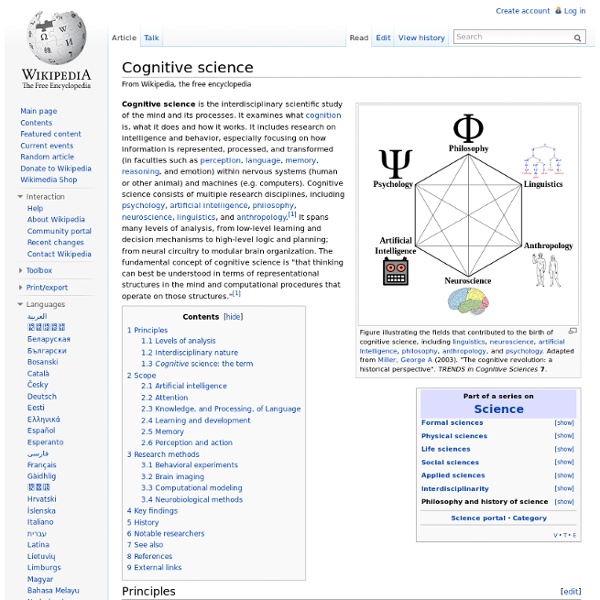8 façons de plaider efficacement en faveur de l'IA en entreprise
De nombreuses recherches montrent que tous les secteurs d'activité sont prêts pour une révolution de l'IA, y compris le service à la clientèle, l'e-commerce, la gestion des produits et le marketing. Pour mieux comprendre comment les pionniers de l'intelligence artificielle (IA) peuvent efficacement positionner et promouvoir l'adoption de l'intelligence artificielle (IA) au sein de leur organisation, j'ai pris contact avec un pionnier de l'analyse, du Big Data et de l'IA qui a préconisé et mis en œuvre des technologies d'IA au cours de son illustre carrière. Ketan Karkhanis est vice-président senior et directeur général de Salesforce Analytics, où il est responsable de tous les aspects de l'activité analytique, notamment la stratégie produit, le marketing, l'ingénierie et la distribution. Ketan Karkhanis comprend la complexité, les avantages et les meilleures pratiques associés à l'adoption de l'intelligence artificielle et à la transformation numérique. 1.
Nouveau monde. Pourquoi les assistants vocaux ont besoin d’écoutes humaines
William Simonin dirige la startup française Vivoka, spécialisée dans la reconnaissance vocale. Il explique pourquoi l’intervention humaine reste nécessaire pour améliorer l’intelligence artificielle même si cela soulève des craintes en matière de vie privée. franceinfo : Faut-il se méfier des assistants vocaux ? William Simonin : je n’irai pas jusqu’à dire qu’il faut s’en méfier mais il faut bien comprendre comment ça marche. La reconnaissance vocale fait appel à un "moteur" logiciel appelé Speech To Text (STT), qui convertit la parole en texte écrit. Cette technologie d’intelligence artificielle n’est pas parfaite et c’est la raison pour laquelle les marques font appel à des opérateurs humains afin de corriger les erreurs et d’améliorer l’IA pour qu’elle ne commette pas plusieurs fois les mêmes erreurs.
Un générateur d'infographie pour représenter votre empreinte sur les réseaux sociaux
Vendredi 23 mars Réseaux sociaux - 23 mars 2012 :: 11:26 :: Par Eric Intel propose un générateur automatique d’infographie qui représente de façon graphique en un clic vos différents centres d’intérêt sur les réseaux sociaux.
IA : "il n'y a pas une once d'intelligence dans ce que font les machines"
On en parle partout, tout le temps. Mais au fait, l'intelligence artificielle, c'est quoi ? Crédit : Getty / exdez L’intelligence artificielle est sur toutes les lèvres.
5 trucs et astuces à connaître impérativement sur YouTube
YouTube est rempli d’astuces. La plateforme de partage de vidéos de Google est l’une des plus visitées sur Internet. Plus de 4 milliards de vidéos sont vues chaque jour et plus de 800 millions d’utilisateurs uniques visitent YouTube chaque mois ! Des chiffres hallucinants qui prouvent le professionnalisme de la plateforme. Histoire de pousser l’expérience à son comble, voici 5 trucs et astuces à connaître impérativement sur YouTube…
Machine Learning : 5 outils à utiliser si vous n'êtes pas Data Scientist
Le Machine Learning est une technologie complexe, mais il existe des outils pour en profiter sans disposer de compétences techniques. Découvrez 5 solutions à utiliser si vous n’êtes pas Data Scientist. L’intelligence artificielle est une technologie toujours plus convoitée par les entreprises de tous les secteurs. Malheureusement, sans les experts qualifiés, il est souvent difficile d’apprivoiser l’IA.
Médias sociaux : six compétences que tout dirigeant se doit de maîtriser
Rares sont les domaines dans les entreprises et dans la société à n’avoir pas été affectés par la révolution des médias sociaux alors même que celle-ci a démarré il y a moins d’une décennie. De nombreuses entreprises ont réagi à cette nouvelle donne, prenant la pleine mesure de la force et du potentiel que ces technologies représentent pour leur organisation : ainsi, des wikis permettent une collaboration virtuelle plus efficace dans des projets transversaux ; des blogs internes, des fora de discussion et des chaînes YouTube encouragent les échanges, avec un partage tant des savoirs que des vues d’ensemble de chacun ; des campagnes virales sophistiquées permettent d’engager la relation avec les clients et de les fidéliser ; des produits de prochaine génération sont co-développés grâce à des processus d’innovation ouverte ; et enfin des dirigeants travaillent à définir leur stratégie d’entreprise 2.0. Mais les médias sociaux ajoutent de nouvelles dimensions à ces caractéristiques.
usbeketrica
La hype autour de l’intelligence artificielle est-elle justifiée ? L’IA est-elle magique ? Doit-on la craindre ? Les instituts ont-ils raison de renoncer à publier leurs résultats ?



